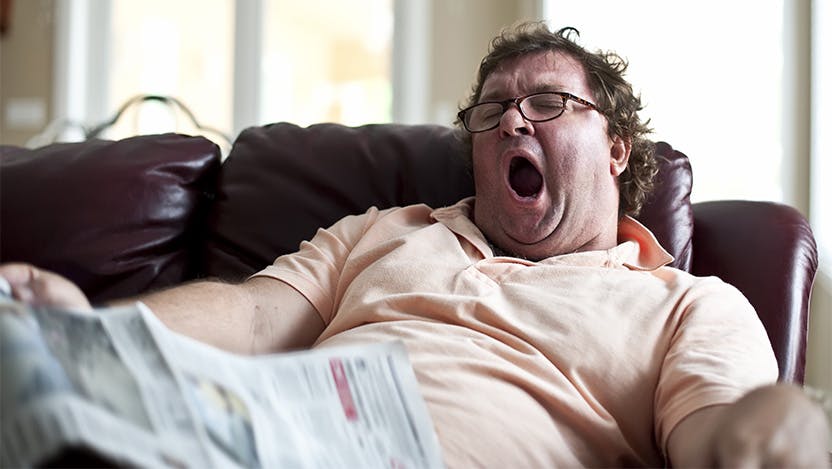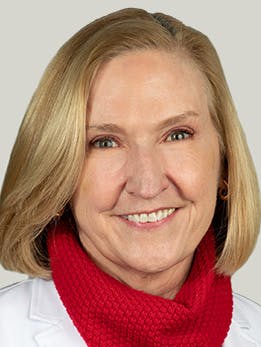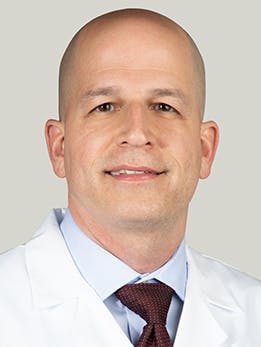How sleep deprivation and sleep apnea impact heart health

In today’s fast-paced world, we often forfeit sleep in the name of productivity.
Unfortunately, sacrificing shut-eye can have significant consequences when it comes to heart health. University of Chicago Medicine cardiologist Kathleen Drinan, DO, and sleep surgeon Phillip LoSavio, MD, weigh in on the dangers of sleep deprivation and why it’s important to address it before it impacts your life.
What happens when we are sleep-deprived?
Approximately one in three adults sleeps less than the recommended seven hours per night. This chronic sleep deprivation takes its toll on processes linked directly to cardiovascular function, leading to issues such as:
- Elevated blood pressure. Interrupted or inadequate sleep cycles can lead to higher-than-average blood pressure levels, which can strain the heart and blood vessels over time.
- Inflammation and stress. Chronic sleep deprivation can lead to higher levels of stress hormones like cortisol, which may contribute to the development of cardiovascular diseases over time.
- Metabolic changes and weight gain. Poor sleep patterns can affect appetite-regulating hormones like leptin and ghrelin. This imbalance can lead to overeating and weight gain, which are risk factors for heart disease and diabetes.
A connection between sleep and heart problems
Surprisingly, even a one-hour shift in sleep can have a measurable impact on heart health.
When clocks "spring forward" for daylight saving time, and we lose an hour of sleep, studies show an increase in the number of heart attacks.
“For about three days after we change our clocks forward, there is about a 24% increased risk of heart attacks,” Drinan said. And when clocks fall back, "we see a 21% reduction in heart attack risks as we gain an hour of sleep."
Studies also show that healthy adults who sleep five hours or less have a 200% to 300% higher risk of coronary artery calcification, the buildup of calcium in the heart’s main arteries.
“We think the lack of sleep increases heart disease risks by forcing our bodies to rely on the sympathetic nervous system, often referred to as the ‘fight or flight' nervous system,” Drinan said. “This leads to the release of more adrenaline and high cortisol levels, which leads to increased risks of heart disease.”
The dangers of undiagnosed sleep apnea
One of the most prevalent but underdiagnosed sleep disorders is sleep apnea, which is characterized by interrupted or obstructed breathing during sleep.
LoSavio estimates somewhere between 50 million to 60 million people in the United States have sleep apnea but only 6 million to 7 million have been diagnosed.
Common symptoms of sleep apnea include loud snoring, abrupt awakenings with shortness of breath, waking up with a dry mouth or sore throat, morning headaches, difficulty staying asleep, excessive daytime sleepiness, and irritability.
Left untreated, sleep apnea can lead to health issues such as high blood pressure, heart problems, type 2 diabetes, and daytime fatigue that can affect work or daily activities.
Drinan noted that these factors can create triggers for heart rhythm disorders, especially atrial fibrillation.
“I refer patients with atrial fibrillation and other arrhythmias for sleep evaluations at the UChicago Medicine Sleep Center. The presence of sleep disorders, especially untreated sleep apnea, can trigger many cardiac arrhythmias and elevate blood pressure, as well as lead to weight gain,” she said.
Treatment can involve lifestyle changes such as weight loss, sleeping position adjustments, using a CPAP (Continuous Positive Airway Pressure) machine, oral appliances, or in some cases, surgery to correct airway obstructions.
“The gap between the 6 million diagnosed and 60 million undiagnosed with sleep apnea is that people are afraid to seek out treatment,” LoSavio said.
“Nobody wants to get a sleep study because they picture being hooked up to a bunch of electrodes in a lab. The truth is about 90% of the sleep studies we do are home studies. We send most patients home with a wrist monitor to wear for one night. From that we can get highly accurate information about their sleep apnea.”
How can we get better sleep?
Rest assured most Americans need to overhaul their sleep hygiene, a set of practices and habits that promote good sleep quality and overall health. The first step is setting and sticking to a regular schedule of going to sleep and rising at the same time every day. Sleep regularity might even be more important than the length of sleep, according to LoSavio.
Other recommendations for better sleep hygiene include:
- Creating a comfortable sleep environment that is dark, cool, and quiet
- Avoiding stimulants like caffeine and nicotine before bedtime
- Regularly exercising to promote better sleep patterns
- Reducing screen time at least an hour before going to sleep
- Managing stress with mindfulness, journaling and therapy
- Limiting daytime naps

Kathleen Drinan, DO
Kathleen Drinan, DO, FACC, FACOI, is a highly skilled clinical cardiologist with over 30 years of cardiac experience. Dr. Drinan is trained in preventive and non-invasive treatments for a wide range of heart conditions, including understanding the difference between heart disease in men and women.
Learn more about Dr. Drinan
Phillip LoSavio, MD
Board-certified otolaryngologist, Phillip LoSavio, MD, MS, is a sleep surgeon who specializes in treating sleep apnea and related upper airway problems, such as nasal airway obstruction, deviated septum, tonsil enlargement, sinusitis and snoring.
Learn more about Dr. LoSavioSleep Disorders in Adults
Our board-certified sleep medicine experts specialize in the assessment of respiratory and non-respiratory sleep disorders. Our services include sleep consultations and sleep studies.
Learn more about our sleep services